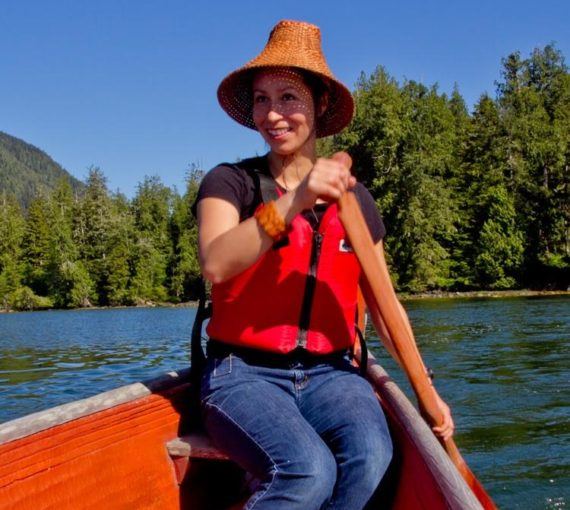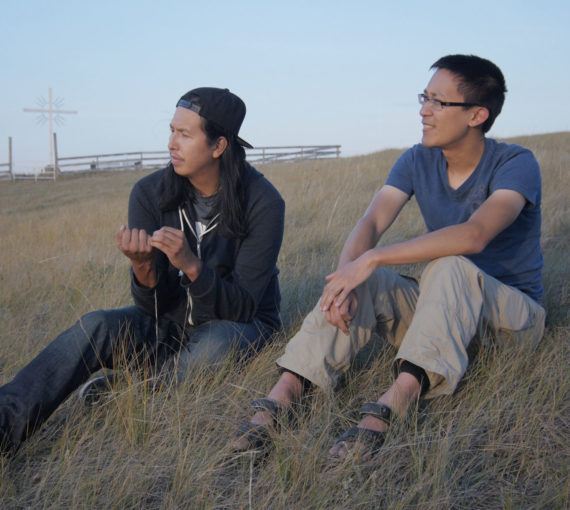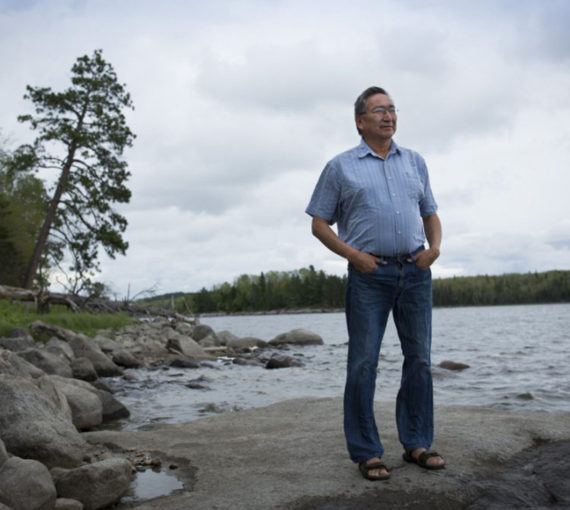
Melina Laboucan-Massimo, David Suzuki Foundation's Indigenous Knowledge and Climate Change Fellow, says Indigenous women living near resource extraction workers' camps suffer disproportionately high rates of violence.
On International Women’s Day, I doubt industrial projects like Kinder Morgan’s Trans Mountain pipeline are top of mind for most. But there is a direct link between natural resource extraction and violence against largely Indigenous women and girls, which serves as an important reminder: violence against the land begets violence against women.
Along with pipelines and the extractive economic engines they support — like Alberta’s oilsands — come so-called “man camps.” Located near extraction sites, these are where mostly male workers live in close quarters for weeks or months at a time.
Most are outsiders to the region, lured in by the prospect of making a lot of money in a short time. Many must leave their families and communities to find work in the oilsands, when their preference would be to stay put, due to economic downturns at home. They seldom have ties to neighbouring First Nations communities. It’s not surprising that some workers turn to drugs, alcohol and sex to blow off steam during days off. According to Amnesty International, studies show that demand for sex work accompanies intensive resource development due to the high number of male workers with excess income. This creates a dangerous mix for women in nearby communities, as the transience of the mostly male workforce means few are held accountable for what they do in or near camp.
A recent Amnesty International study confirms what I and many other Indigenous Peoples have known for a long time: Indigenous women living near these camps suffer disproportionately high rates of violence.
In 2016, Amnesty’s Out of Sight, Out of Mind report found that resource extraction in northern communities puts women at risk. It spoke to women in B.C.’s Peace River region, like Helen Knott, who have experienced gender-based violence by workers serving Canada’s resource economy. In the report, Knott alludes to the sense among many workers that their economic power allows them to express sexist and racist beliefs they would otherwise withhold. To justify violence, Knott adds that some workers would assume Indigenous women and girls were “drunk, easy and wanted it anyway.”
The problem plagues Indigenous women and their communities wherever resource extraction takes place. In North Dakota, a 2010-13 oil boom resulted in an increase in gender-based violence toward Indigenous women living in and around the Fort Berthold Reservation. Research compiled by Honor the Earth found that the number of reported rapes increased as man camps more than doubled the region’s population, supporting the Bakken oil boom.
“North Dakota’s Uniform Crime Report shows that violent crime is up 7.2 percent in the state and a record 243 rapes were committed in 2012, up from an already appalling 207 in 2011. North Dakota Attorney General Wayne Stenehjem noted that 12 of the state’s top oil-producing counties accounted for much of the crime. He further noted that police have seen an increase in sexual trafficking, drugs and other organized criminal enterprises in these areas,” as noted by Indian Country Today quoting an article in Bismarck Tribune.
Indigenous women and girls already suffer the highest rates of violence in Canada. Development of environmentally destructive projects like pipelines only heightens the risk.
A 2015 Inter-American Commission on Human Rights report on murdered and missing Indigenous women documented how, “the police have failed to adequately prevent and protect indigenous women and girls from killings, disappearances and extreme forms of violence, and have failed to diligently and promptly investigate these acts.”
Violence against Indigenous women has systemic causes that are colonial in nature, dating back to racist policies that included separating Indigenous children from their parents and forcibly placing them in residential schools.
We need to unpack the patriarchal, racist and colonial mentalities of Canadian society to ultimately address the reasons why Indigenous women’s lives are not valued in Canadian society as much as the lives of non-Indigenous women. This was so clearly exemplified in the recent court case regarding the murder of Tina Fontaine.
As tensions flare in British Columbia, Alberta and across Canada around the future of Kinder Morgan’s Trans Mountain pipeline expansion project, the largely ignored consequence of further injustice and abuse toward Indigenous women and girls is yet another reason — on a growing list — to shelve the project once and for all.
If we are serious about social equity for all women and girls — especially Indigenous mothers and sisters — then this International Women’s Day, we must recognize that violence against Earth is violence against women. The path toward a cleaner, safer and more just world means reconciliation with all women, girls and Mother Nature alike.


